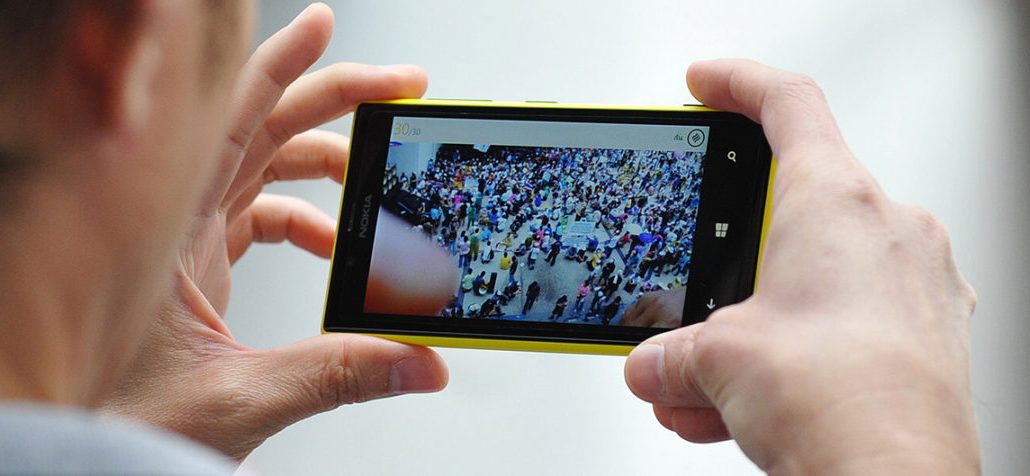Secure your place at the Digiday Media Buying Summit in Nashville, March 2-4
‘Wipe the slate clean’: What happens when mobile operators align with ad blockers

Mobile operators EE and O2 are considering a response to the rise in ad blocking that would curb ads on their networks — a move that has sparked mixed reactions from ad land.
This week, The Telegraph reported that EE is considering filtering ads that run on its network, while O2 is claiming to be in “advanced stages” of installing technology to curb ads on theirs, according to Business Insider.
O2 said in a statement that it believes in a “predominantly” ad-free Internet and sees ad blocking as a call to the ad industry to “raise the bar” in terms of quality. The move has caused a stir in the ad industry, including calls for a wholesale rethinking of mobile advertising.
“We need to wipe the slate clean and start over,” said Essence’s head of mobile Liam Pook, adding that clients must collaborate with agencies and publishers to determine what the next wave of “acceptable” ads should be.
His sentiments were echoed by Paul Bennun, chief creative officer of content agency Somethin’ Else. Ads that annoy, interrupt or cause painfully slow page loads could never be sustainable, he said. “The genie is out of the bottle, and it’s never going back in,” said Bennun. “The shit hasn’t even hit the fan yet, but it’s beginning to, as we can see with O2 and EE starting to wade in.”
Others want trade bodies like the Internet Advertising Bureau (IAB) to help steer the operators on how an acceptable ad experience is classed. “I hope networks such as O2 and EE will work closely with a governing body like the IAB to make these ad culling and ‘best practice’ decisions,” said MediaCom’s head of mobile Nicole Amodeo. “Advertisers, publishers and ad tech companies should all be actively involved in this process so that our brands’ needs are best served.”
And then there are the very motives of the operators — which some have called into question. “Companies need to stop pretending they are doing this for consumer protection,” said DigitasLbi’s head of mobile, Ilicco Elia. He added that customers may welcome the restriction of ads in the short term partly because it may lead to cheaper data tariffs, but in the long term, the changes could prove “unhelpful” both to consumers and the ad industry if they are enforced.
Still, there could be positive outcomes for publishers and ad tech companies, according to a senior ad tech executive, who wished to stay anonymous. Mobile CPMs to date are drastically lower than desktop, this exec pointed out. “If they are to become more scarce, that drives up their value so it could be beneficial for premium publishers and ad tech companies.”
In the end, the ad tech industry may also just innovate around it, according to Elia. First-party data may increasingly lead advertising, which means ads will come directly from a publisher like the Guardian. “The down side of that is if ads don’t come through the likes of DoubleClick, the analytics won’t be as good, and the end result may be less relevant ads,” he added.
However, he added that the proposed changes could lead to the operators charging publishers a fee to be white-listed from having any ads blocked, similar to what ad blocking companies offer. “Operators have been fairly stupid over the last 10 years and given away a lot to Google and Facebook for free,” he said.
“They addressed the concern of becoming dumb pipes by getting into content, but they have now become dumb pipes for Google and Facebook to cream off all the economic profits.”
Meanwhile details as to how the operators should curb bad ads are yet to be determined, but the notion of intercepting consumers mobile Web experiences are ringing some familiar bells to do with net neutrality. EE and O2 are also not the first mobile operators to attempt it.
Caribbean mobile operator Digicel, which spans 33 countries, has been wrapped by regulator Ectel for trying to install ad blocking technology across at a network level. Ectel doesn’t object to why Digical chose to install the technology, but disagrees with the method of implementation. “EE and O2 should take heed of this,” said one mobile privacy expert. “It will also come down to trust. How much do consumers trust their mobile operators to filter their experience on their behalf.”
More in Marketing

WTF are tokens?
When someone sends a prompt or receives a response, the system breaks language into small segments. These fragments are tokens.

AI is changing how retailers select tech partners
The quick rise of artificial intelligence-powered tools has reshaped retailers’ process of selecting technology partners for anything from marketing to supply chain to merchandising.

YouTube’s upmarket TV push still runs on mid-funnel DNA
YouTube is balancing wanting to be premium TV, the short-form powerhouse and a creator economy engine all at once.





